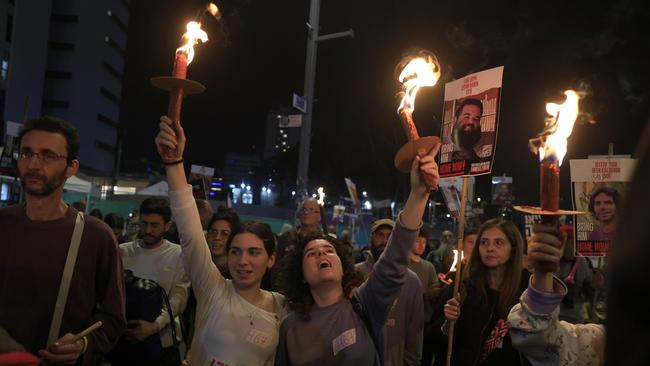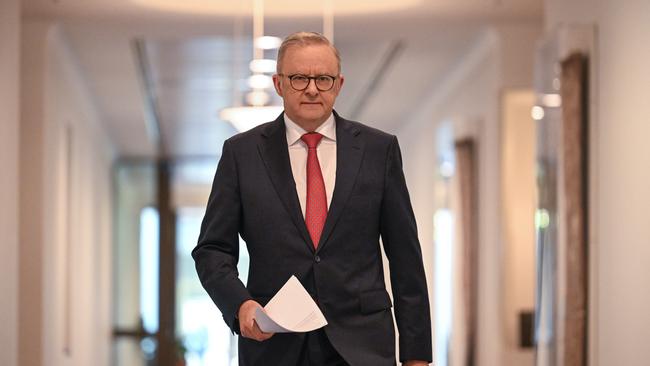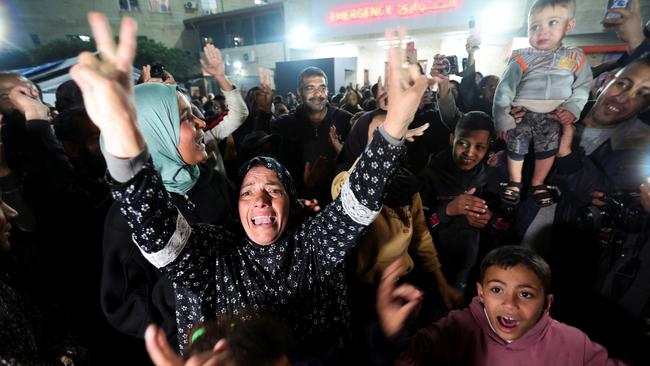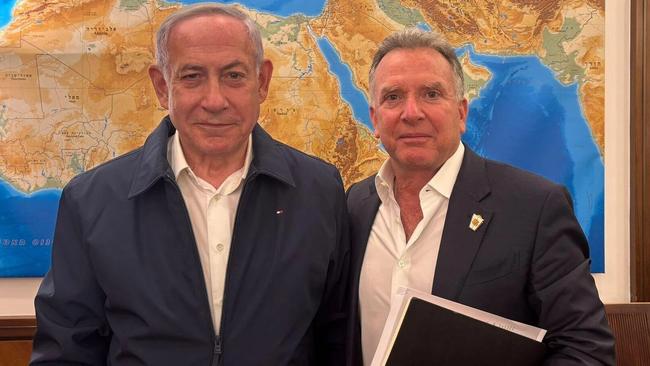
If the Israeli hostages come home, and conflict and bloodshed stop at least for a time in Gaza, it’s a triumph for Donald Trump and for Benjamin Netanyahu, and a blessed relief for Israelis and Palestinians.
Even if it all works according to plan, and that’s a huge if, it won’t end the anti-Semitism crisis in Australia, nor does it put Australia’s historically important relationship with Israel back on track, after the sustained hostility to Israel demonstrated by the Albanese government.
The Prime Minister’s statement that everything in the relationship is just fine continues a weird recent tradition he’s adopted of making public statements which are not just wrong, but actually bear no relationship at all to reality.
Netanyahu in December made the devastating accusation that the Albanese government’s anti-Israel rhetoric caused anti-Semitism in Australia. Following the burning of a Melbourne synagogue, Netanyahu posted on social media that: “It is impossible to separate the reprehensible arson attack from the federal government’s extreme anti-Israeli position.”
But Albanese thinks the Australia/Israel relationship just fine. Go figure.

One thing Albanese said that was sensible was there was no prospect of his government recognising a Palestinian state before the federal election.
The Australian government’s hope is just that things quieten down for a while.
Although it’s immensely hopeful, this is still a very shaky deal with a very uncertain future. It’s a sign that Hamas and its supporters are weakened.
Some days ago the bigger Palestinian movement, Fatah, lambasted Hamas for bringing such suffering on the people of Gaza purely to serve Iran’s strategic interests.
This ceasefire is eloquent evidence of the truth of Fatah’s assessment of Hamas. At any time in the last year and more, Hamas could have secured a ceasefire, and avoided appalling suffering for its own people, simply by agreeing to release Israeli hostages.
They didn’t release these hostages because they calculated that the suffering of Palestinians was a small price to pay for the embarrassment and isolation of Israel internationally.
The Albanese government’s actions, although extremely marginal in their effect in the Middle East, reinforced that lethal dynamic. Trump powerfully reversed it.
However, there is still a whole galaxy of questions unanswered by the deal, which will come into force on Joe Biden’s last day in office.

During the ceasefire period itself, who will govern Gaza?
Who, if anyone, will provide security within Gaza? One of the big problems with aid to Gaza is that it is routinely looted by the remaining units of Hamas and by other criminal gangs within Gaza.
If the Israelis pull back militarily, who will provide security in Gaza, for those aid shipments and in due course generally?
And of course, in the envisaged Phase Two of the agreement, if the IDF withdraws more generally from Gaza, there is the question of who or what governs the territory overall for the medium and long term.
Negotiations over this can be expected to be very tough.

Israel will want the ability to control the Philadelphi corridor, the southern border between Gaza and Egypt. This border has seen massive weapons smuggling in the past.
The Israelis will also insist on freedom of movement for their forces across Gaza so that no terrorist operation like that which occurred on October 7 can happen again.
Hamas on the other hand wants to go back as near as possible to the pre-October 7 status quo (when there was also a ceasefire in place) so that it can prepare the next October 7-style atrocity.
Nonetheless, any good day in the Middle East is worth celebrating, partly because good days are so rare.
Whether this good day leads to more good days in the future is impossible to know. But it does offer some reason for hope.






The ceasefire and hostage deal in Gaza is hopeful but extremely fragile.